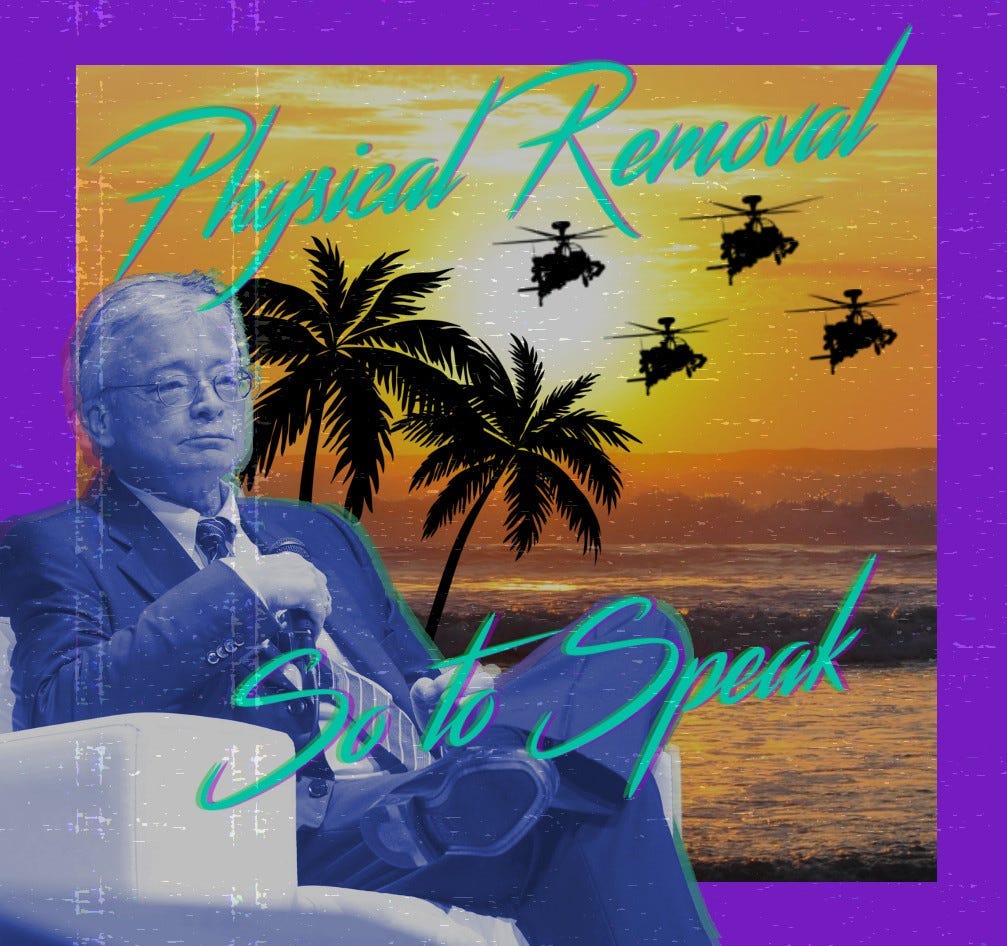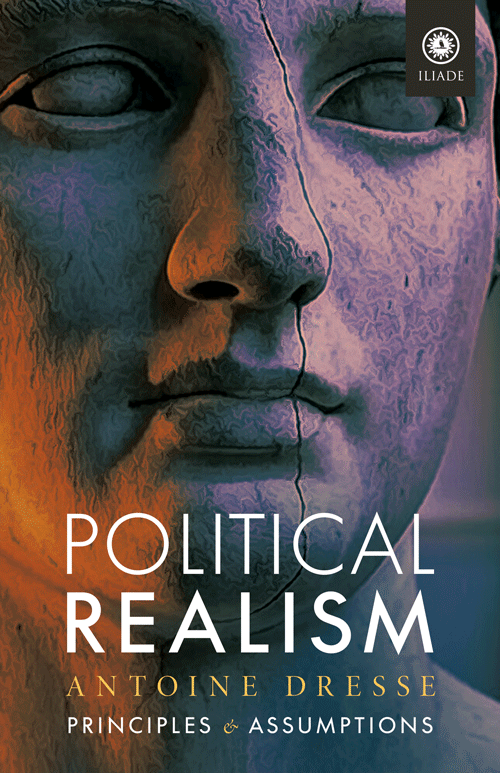Decivilizing Democracy
Antoine Dresse (“Ego Non”) explores the thought of libertarian philosopher Hans-Hermann Hoppe, who has upended centuries of liberal thought by arguing that democracy is not the natural ally of individual freedom, but rather its structural enemy—a “decivilizing” force that incentivizes short-term thinking and erodes social capital.
Liberal thought has long been associated with a defense of democracy. Not unconditionally, certainly, but at least for instrumental reasons. Democracy appeared, despite its flaws, as the best mechanism for guaranteeing social peace and preserving individual liberties. Thus, “classical” liberals like Benjamin Constant, Alexis de Tocqueville, or Lord Acton sided with the democratic regime to limit arbitrariness (while remaining conscious of the dangers of “tyranny of the majority”), and then liberals of the 20th century saw in it the unsurpassable horizon of liberalism in the face of totalitarian danger.
But one author broke this consensus at the dawn of the 21st century, declaring that democracy was not the natural extension of liberalism, but its structural negation, even a civilizational regression. This man is Hans-Hermann Hoppe, today the darling of a segment of the libertarian milieu, with his explosive and radical book Democracy: The God That Failed, published in 2001.
A Decivilizing Democracy
It has been approximately a century – since the end of the First World War – that parliamentary democracy has established itself as the default regime of the Western world. It is therefore time to take stock of it. Yet this assessment does not speak in its favor, Hoppe announces from the outset: “At the end of the 20th century, increasingly more evidence accumulates that instead of marking the end of history, the American system is itself in a deep crisis. Since the end of the 1960s or the beginning of the 1970s, real wage incomes in the United States and Europe have stagnated or even fallen. In Western Europe in particular, unemployment rates have risen without interruption and currently exceed 10%. Public debt has everywhere reached astronomical heights, exceeding in many cases the country’s annual gross domestic product.” For Hoppe, these indicators should rather incite us to anticipate a major crisis to come. Our social security systems are everywhere bankrupt or close to it, and once bankruptcy is confirmed, the democratic ideal will be difficult to sustain.
The first expected attitude in the face of this bankruptcy would be to heave a sigh of regret or to fight to restore democracy in all its former splendor. Yet it is precisely to indicate another path that Hoppe wrote his book. Democracy, he indicates, has failed due to its very nature and intrinsic principles. Far from regretting it, it is therefore more appropriate to dissect it and consider alternative paths in order to escape from the social and institutional quagmire in which we find ourselves.
The entire first part of the work thus consists of a rigorous and fascinating comparison of democratic and monarchical regimes. Yet the judgment is unequivocal: democracy is a decivilizing force. To assert this, Hoppe starts from the concept of “time preference,” an important notion in Austrian economic science. To summarize in broad strokes, time preference designates our instinctive tendency to accord more value to a good available right away than to the same good obtained later, all other things being equal. We prefer to receive 100 euros today than 100 euros in a month. To renounce this immediate enjoyment, compensation would be needed: receiving 150 euros in a month, for example, rather than 100 euros today. Waiting would become more attractive here.
Time Preference
This is, of course, a trivial example, but this question of time preference arises daily in our consumption and savings relationships: we sometimes prefer an object of average quality that we can buy today to a superior object that would require a month of patience and saving. On a large scale, it is this same logic that underlies interest rates: they remunerate the fact of deferring the use of a resource over time. At the level of a society, a low time preference thus favors savings and long-term projects, while a high time preference encourages immediate consumption and the erosion of material and moral capital.
Now, Hoppe precisely shows that democracy tends to raise society’s time preference because it entrusts the state apparatus to non-owner managers, with a short horizon (due to elections), incentivized to distribute immediate benefits (spending, transfers, easy credit) and to defer costs (future taxes, debt, inflation, regulation). Hereditary monarchy, conversely, places an owner facing a transmissible asset, the country, which constitutes his own capital. In doing so, the king internalizes future losses more and has an interest – all other things being equal – in preserving the tax base and the productive asset. Hence Hoppe’s central thesis: “public” government (democratic) is contiguous with a shortened horizon, and thus with a higher social time preference, while “private” government (monarchical) is accompanied by a longer horizon and a lower time preference. By structurally installing a high time preference, democracy gradually drags society into a sort of permanent present, where the family institution becomes fragile, individual autonomy recedes, savings stagnate despite material enrichment, and criminality, welfare dependency, and hedonism gain ground – signs, according to him, of an infantilization and brutalization of social life.
Hoppe does not define himself as a monarchist, however. The comparison between the two regimes serves him above all to highlight the flaws and limits of democracy. It is not because monarchy seems preferable to democracy to him that he makes it his ideal: he simply considers it the best possible form of state. There remains the question of whether the state is truly necessary: that is another question. Yet Hoppe remains a staunch libertarian; his normative horizon is therefore that of a “natural order,” anarcho-capitalist: a market of law and security based on private property, contracts, and voluntary secession.
From Anarcho-Capitalism to Neo-Royalism?
Yet it is here that the shockwave generated by Hoppe exceeds its author. His critique of democracy and his owner/manager opposition have furnished intellectual ammunition for the Anglo-Saxon current called Neoreaction (NRx) and to Curtis Yarvin, who, for their part, assume the monarchical leap. Where Hoppe wants a thousand competing jurisdictions rooted in private property, the Neoreactionaries readily advocate for a “sovereign-CEO”: centralize to create accountability, transform the state into a company whose leader would hold the capital. The argument is thus cousin to his own. If one wants to limit the time preference of power, property must be reintroduced at the heart of government. Thus, even if Hoppe did not necessarily wish to revive monarchist political thought, he has furnished weapons for a sort of contemporary neo-royalism, namely Curtis Yarvin’s “neocameralism.”
Whether one adheres to his solutions or not, Hoppe has at least imposed three useful intellectual gestures. The first consists of putting democracy back in its place by ceasing to treat it as a moral absolute; the second, to put time back at the heart of politics; the third, to bring to the forefront the question of property and responsibility: without property – and thus without direct responsibility – are managers not simply playing with other people’s money, in contempt of all collective consequence?
Originally published in Éléments no. 216, October-November 2025
Translated by Alexander Raynor






